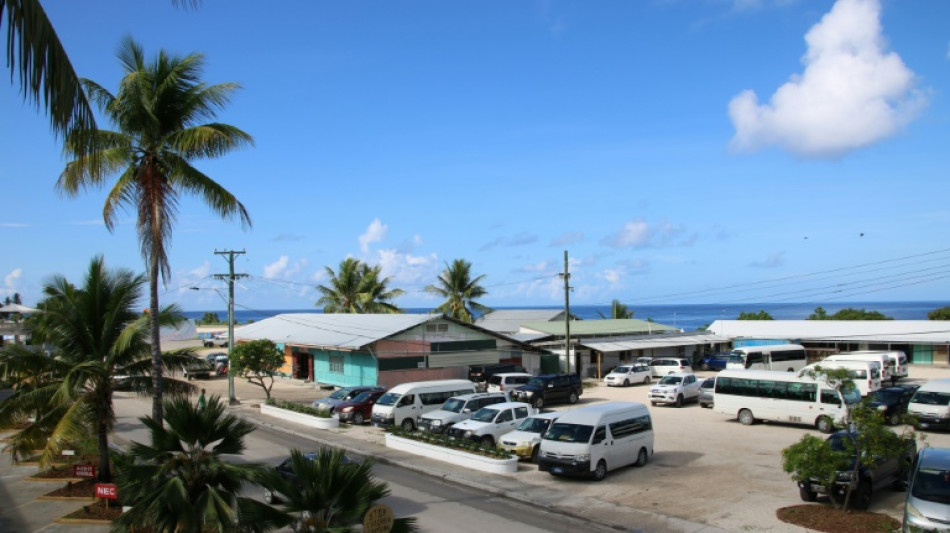
-
 Bear injures two in Japan supermarket, man killed in separate attack
Bear injures two in Japan supermarket, man killed in separate attack
-
In Simandou mountains, Guinea prepares to cash in on iron ore
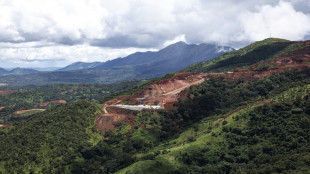
-
 Morikawa says not to blame for 'rude' Ryder Cup fans
Morikawa says not to blame for 'rude' Ryder Cup fans
-
Far right harvests votes as climate rules roil rural Spain
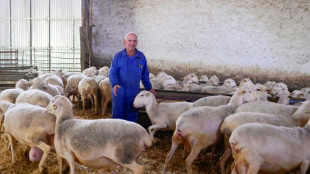
-
 'Return to elegance': highlights from Paris Fashion Week
'Return to elegance': highlights from Paris Fashion Week
-
Britain's storied Conservative party faces uncertain future

-
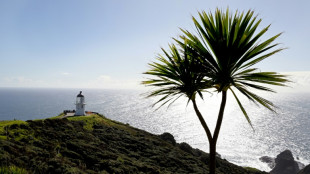 New Zealand's seas warming faster than global average: report
New Zealand's seas warming faster than global average: report
-
Snakebite surge as Bangladesh hit by record rains

-
 Yankees deny Blue Jays playoff sweep as Mariners beat Tigers
Yankees deny Blue Jays playoff sweep as Mariners beat Tigers
-
Australia police foil 'kill team' gang hit near daycare centre

-
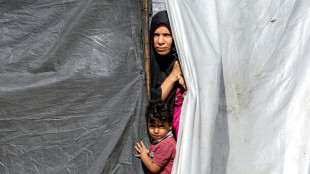 US, Qatar, Turkey to join third day of Gaza peace talks in Egypt
US, Qatar, Turkey to join third day of Gaza peace talks in Egypt
-
Gold tops $4,000 for first time as traders pile into safe haven

-
 Indian garment exporters reel under US tariffs
Indian garment exporters reel under US tariffs
-
NBA back in China after six-year absence sparked by democracy tweet

-
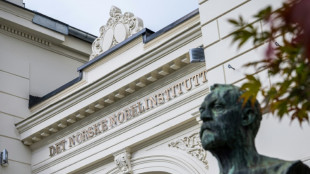 Energy storage and new materials eyed for chemistry Nobel
Energy storage and new materials eyed for chemistry Nobel
-
Trump unlikely to win Nobel Peace Prize, but who will?

-
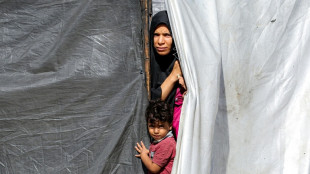 Qatar, Turkey to join third day of Gaza peace talks in Egypt
Qatar, Turkey to join third day of Gaza peace talks in Egypt
-
Study finds women have higher genetic risk of depression

-
 Dolly Parton's sister calls for fan prayers over health issues
Dolly Parton's sister calls for fan prayers over health issues
-
On Trump's orders, 200 troops from Texas arrive in Illinois

-
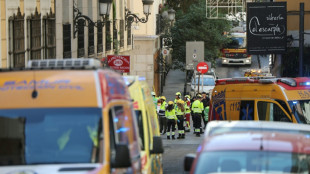 Two bodies found, two missing after Madrid building collapse
Two bodies found, two missing after Madrid building collapse
-
Panthers raise banner as NHL three-peat bid opens with win

-
 Nobel physics laureate says Trump cuts will 'cripple' US research
Nobel physics laureate says Trump cuts will 'cripple' US research
-
UFC star McGregor suspended 18 months over missed drug tests

-
 Trump talks up Canada trade deal chances with 'world-class' Carney
Trump talks up Canada trade deal chances with 'world-class' Carney
-
Ecuador president unharmed after apparent gun attack on motorcade
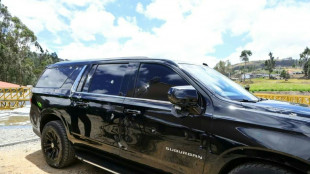
-
 Lyon exact revenge on Arsenal, Barca thrash Bayern in women's Champions League
Lyon exact revenge on Arsenal, Barca thrash Bayern in women's Champions League
-
Trump says 'real chance' to end Gaza war as Israel marks attacks anniversary
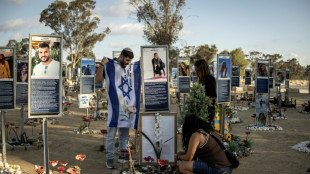
-
 Gerrard brands failed England generation 'egotistical losers'
Gerrard brands failed England generation 'egotistical losers'
-
NFL fines Cowboys owner Jones $250,000 over gesture to fans

-
 Bengals sign veteran quarterback Flacco after Burrow injury
Bengals sign veteran quarterback Flacco after Burrow injury
-
New prime minister inspires little hope in protest-hit Madagascar

-
 Is Trump planning something big against Venezuela's Maduro?
Is Trump planning something big against Venezuela's Maduro?
-
EU wants to crack down on 'conversion therapy'

-
 French sex offender Pelicot says man who abused ex-wife knew she was asleep
French sex offender Pelicot says man who abused ex-wife knew she was asleep
-
Trump says 'real chance' to end Gaza war as Israel marks Oct 7 anniversary
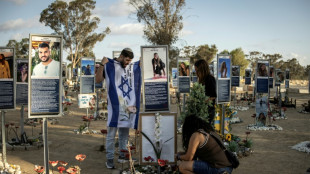
-
 UK prosecutors to appeal dropped 'terrorism' case against Kneecap rapper
UK prosecutors to appeal dropped 'terrorism' case against Kneecap rapper
-
Spain, Inter Miami star Alba retiring at end of season

-
 EU targets foreign steel to rescue struggling sector
EU targets foreign steel to rescue struggling sector
-
Trump talks up Canada deal chances with visiting PM

-
 Knight rides her luck as England survive Bangladesh scare
Knight rides her luck as England survive Bangladesh scare
-
Pro-Gaza protests flare in UK on anniversary of Hamas attack
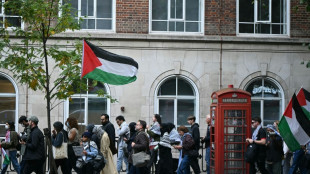
-
 Top rugby unions warn players against joining rebel R360 competition
Top rugby unions warn players against joining rebel R360 competition
-
Outcast Willis 'not overthinking' England absence despite Top 14 clean sweep

-
 Trump says 'real chance' of Gaza peace deal
Trump says 'real chance' of Gaza peace deal
-
Macron urged to quit to end France political crisis

-
 No.1 Scheffler seeks three-peat at World Challenge
No.1 Scheffler seeks three-peat at World Challenge
-
Canadian PM visits Trump in bid to ease tariffs

-
 Stocks falter, gold shines as traders weigh political turmoil
Stocks falter, gold shines as traders weigh political turmoil
-
Senators accuse US attorney general of politicizing justice
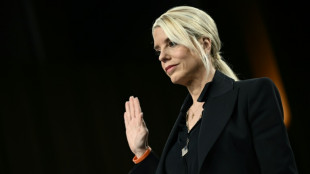

Pacific microstate sells first passports to fund climate action
A remote Pacific nation has started selling passports to fund climate action, but is so far struggling to attract new citizens to the low-lying, largely barren island.
Pacific microstate Nauru, one of the world's smallest nations, has a novel plan to fund its fight against climate change by selling so-called "golden passports".
Selling for US$105,000 each, Nauru plans to drum up more than US$5 million in the first year of the "climate resilience citizenship" programme.
Almost six months after the scheme opened in February, Nauru has so far approved just six applications -- covering two families and four individuals.
Despite the slow start -- Nauru eventually hopes to sell 66 passports in the scheme's first year -- President David Adeang remained upbeat.
"We welcome our new citizens whose investment will assist Nauru to secure a sustainable and prosperous future for generations to come," he told AFP on Thursday.
Nauru believes the passport programme could eventually generate $43 million -– or about 500 successful applicants -- which would account for almost 20 percent of total government revenue.
But there are fears the scheme could be ripe for exploitation.
Edward Clark, who runs Nauru's climate passport programme, said one application has already been withdrawn after officials flagged "adverse findings" during background checks.
"The application would have been rejected had it not been withdrawn," he told AFP.
A previous Nauru attempt to sell passports ended in disaster.
In 2003, Nauru officials sold citizenship to Al-Qaeda members who were later arrested in Asia.
Among the first batch of climate passports approved was an unnamed German family of four living in Dubai, said Clark touting the "major milestone".
- 'Political volatility' -
"They were looking for a second citizenship to provide them with a Plan B given the current global political volatility."
The Nauru passport provides visa-free entry into 89 countries, including the United Kingdom, Ireland, United Arab Emirates and Hong Kong.
More than 60 different nations offer some form of migration for investment schemes, Australia's Lowy Institute has found.
Pacific nations such as Vanuatu, Samoa and Tonga have all dabbled in selling passports.
The island republic of Nauru sits on a small plateau of phosphate rock in the sparsely populated South Pacific.
With a total landmass of just 21 square kilometres (eight square miles), it is one of the world's smallest nations.
Unusually pure phosphate deposits -- a key ingredient in fertiliser -- once made Nauru one of the wealthiest places, per capita, on the planet.
But these supplies have long dried up, and researchers today estimate 80 percent of Nauru has been rendered uninhabitable by mining.
What little land Nauru has left is threatened by encroaching tides. Scientists have measured sea levels rising 1.5 times faster than global averages.
Nauru will eventually need to relocate 90 percent of its population as creeping seas start to eat away at its coastal fringe.
The first phase of this mass relocation is estimated to cost more than $60 million.
M.Schneider--VB
